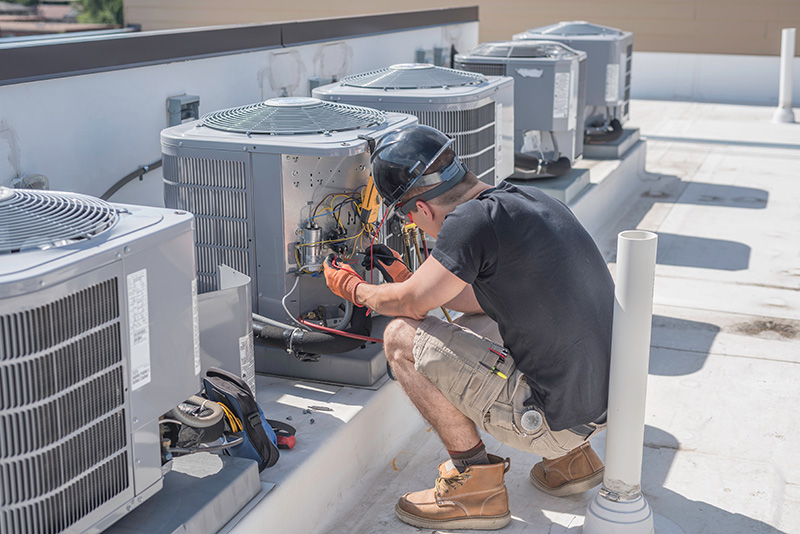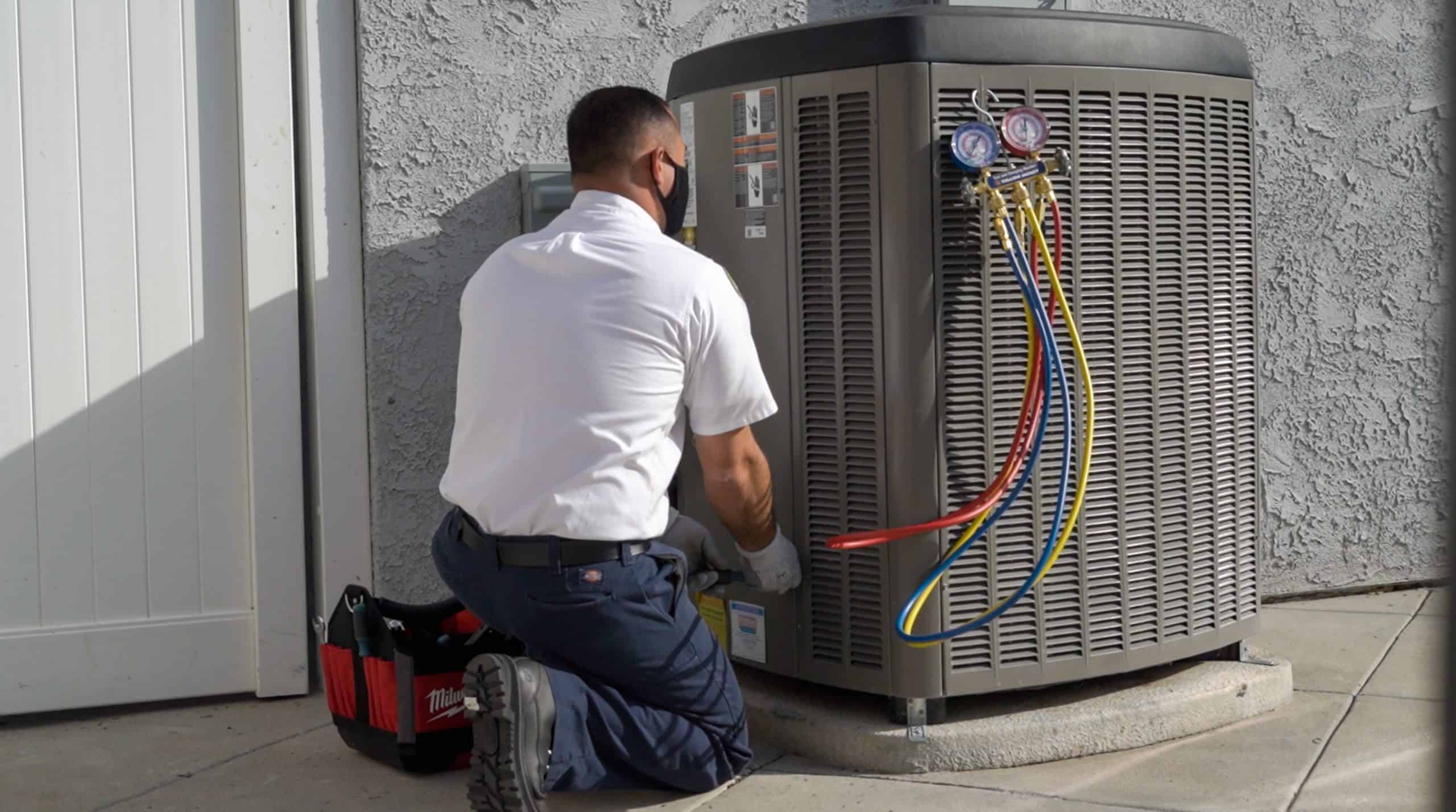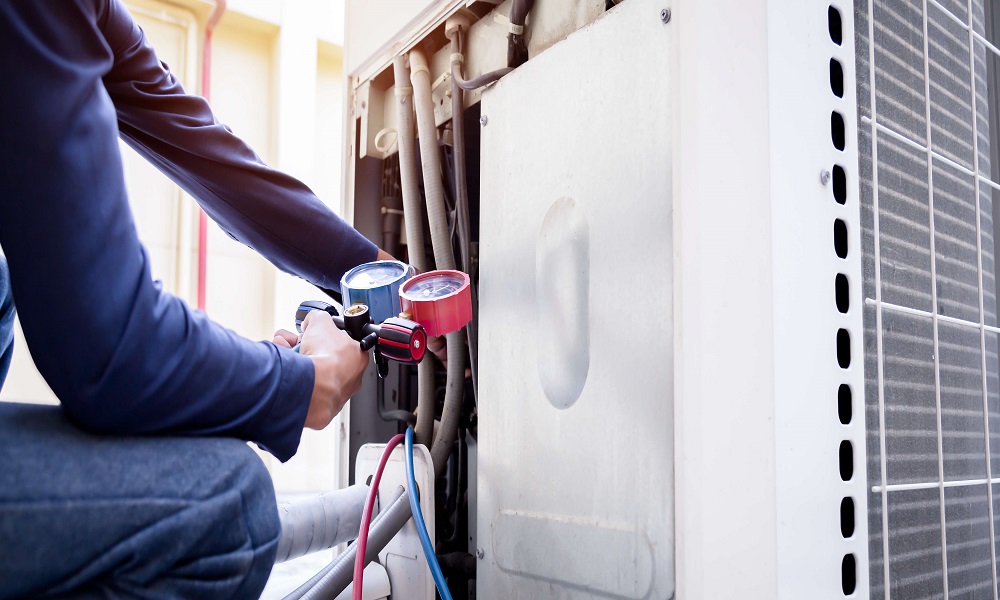Upgrade Your System Today with DMAKS HVAC Expert Solutions.
Upgrade Your System Today with DMAKS HVAC Expert Solutions.
Blog Article
Energy-Efficient Cooling And Heating Systems to Save on Utility Bills
As power prices remain to increase, the value of energy-efficient cooling and heating systems comes to be increasingly obvious. These systems not only assure significant savings on energy expenses yet likewise contribute to a more sustainable future by decreasing energy usage. With various alternatives available, consisting of geothermal warm pumps and ductless mini-splits, homeowner face a wide variety of choices that can boost convenience and air high quality. Understanding the key functions and upkeep requirements is necessary to making best use of these advantages. What elements should be focused on when selecting the best system for your requirements?
Advantages of Energy-Efficient HVAC Solutions
Energy-efficient Cooling and heating systems offer various advantages that prolong past plain price savings. By taking in much less power, these systems contribute to lower greenhouse gas discharges, assisting to combat climate change and promote sustainability.
Additionally, energy-efficient heating and cooling systems often offer improved convenience degrees. A number of these systems include sophisticated modern technology that allows for much better temperature level control and boosted air top quality (DMAKS HVAC). This brings about a much healthier interior setting, which is specifically essential for people with allergic reactions or respiratory issues
Additionally, buying energy-efficient a/c systems can boost residential property value. As even more consumers prioritize power performance, homes and structures furnished with these systems may attract higher proposals in the property market.
Sorts Of Energy-Efficient Heating And Cooling Options
How can home owners and businesses select the most suitable energy-efficient cooling and heating options for their demands? The market uses a range of energy-efficient HVAC systems, each designed to enhance convenience while reducing energy intake.
One alternative is the variable cooling agent flow (VRF) system, which efficiently manages the temperature in several zones within a structure. This system adapts its cooling agent flow to match the desired temperature level, causing significant power financial savings.
One more popular option is geothermal heat pumps, which make use of the earth's stable temperature level to warm and awesome rooms. By transferring warm to and from the ground, these systems demonstrate excellent efficiency, specifically in modest climates.
In addition, ductless mini-split systems give an energy-efficient option for homes lacking ductwork. These systems permit zone-specific heating & cooling, lowering power waste in vacant areas.
Lastly, high-efficiency heaters and air conditioning system, with sophisticated SEER and AFUE ratings, supply trustworthy environment control while consuming less power than standard designs. By evaluating these options, homeowners and services can pick an a/c system customized to their details needs and power performance objectives.
Key Functions to Consider

Following, examine the sort of compressor made use of in the continue reading this system. DMAKS HVAC. Variable-speed compressors can readjust their result to match the heating or cooling down demand, leading to boosted convenience and power cost savings contrasted to single-speed models. Additionally, seek systems equipped with smart thermostats that use programmable settings and remote gain access to, permitting far better control over power intake
One more important feature is the system's air filtration capability. High-efficiency filters can boost indoor air high quality and decrease energy usage by guaranteeing the system runs successfully. Furthermore, take into consideration the sort of cooling agent utilized; contemporary systems typically employ environmentally friendly refrigerants that have a lower ecological effect.
Finally, guarantee that the system works with zoning innovation, which enables tailored temperature level control in various locations of your home, improving convenience while minimizing power use.
Tips for Selecting the Right System


Next, take into consideration energy performance scores, specifically the Seasonal Energy Efficiency Ratio (SEER) for cooling systems and the Annual Fuel Application Performance (AFUE) for furnace. Greater scores suggest better efficiency, which can cause considerable savings on utility bills in time.
Additionally, assess the sort of HVAC system that ideal suits your lifestyle and spending plan. Choices include central air, ductless mini-splits, and heat pumps, each with its very own set of advantages and disadvantages.
Don't ignore the importance of appropriate setup and sizing; an incorrectly sized system can lead to inadequacies and boosted wear. Last but not least, consult with an expert heating and cooling contractor to obtain professional suggestions tailored to your home's distinct requirements. This extensive strategy will make certain that you select an energy-efficient a/c system that satisfies your demands and budget efficiently.
Upkeep for Optimum Effectiveness
When the ideal a/c system he has a good point is in location, continuous maintenance ends up being crucial to guaranteeing optimum effectiveness and durability. A well-kept system runs a lot more successfully, causing lower energy intake and decreased utility bills. Routine inspections and tune-ups ought to be scheduled at the very least twice a year-- when before the cooling period and once prior to the heating season.

Home owners need to also be vigilant about monitoring their cooling and heating system's efficiency. Unusual sounds, varying temperatures, or enhanced power costs can suggest underlying problems that need instant attention. By attending to these issues promptly, property owners can prevent pricey repair work and prolong the lifespan of their systems.
Investing in an upkeep plan with a certified specialist not only boosts efficiency however likewise offers tranquility of mind, knowing that the system is running at its best. DMAKS HVAC. Routine maintenance is consequently my response essential for sustaining power effectiveness and minimizing overall operational expenses
Final Thought
To conclude, energy-efficient cooling and heating systems provide a viable service for decreasing energy costs while boosting convenience and air high quality. By integrating innovative innovations and options such as geothermal heat pumps and ductless mini-splits, property proprietors can achieve substantial power cost savings and add to environmental sustainability. Mindful factor to consider of system functions and recurring maintenance even more makes certain optimum performance, making energy-efficient systems a sensible investment for both financial and environmental advantages.
Report this page